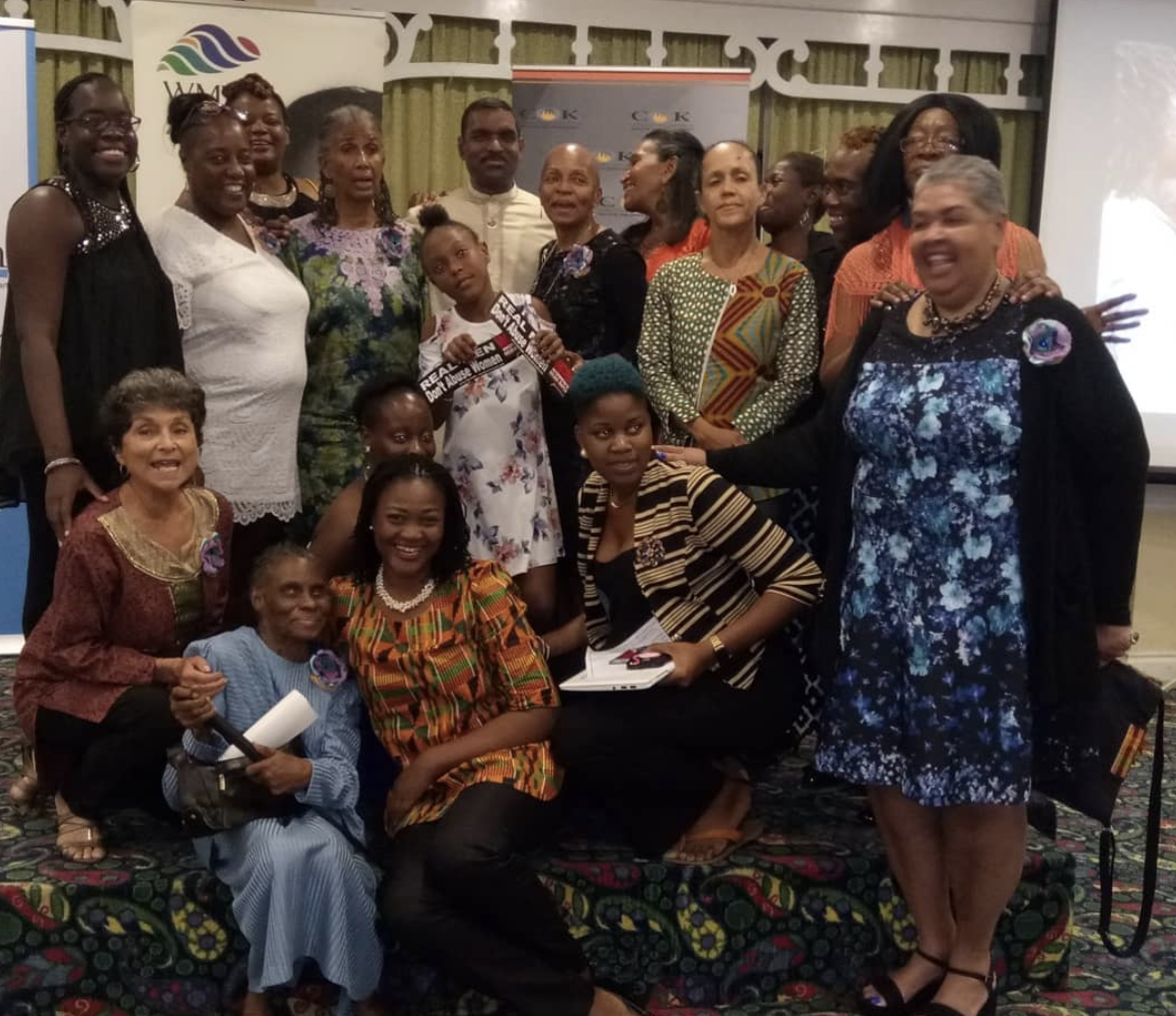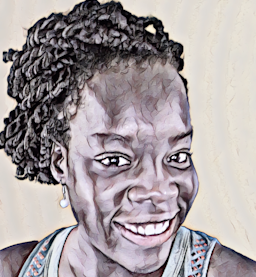Waking Up To My Own Power (Part 1)
Sep 21, 2021
Story

My involvement in gender and women's rights advocacy was almost accidental.
I moved from my very conservative home in rural St. Mary, Jamaica, and went to live on the only all-girls' hall at the University of the West Indies, Mona (UWI) in the country's capital city, Kingston. For the next three years while I lived on Mary Seacole Hall, I got an education in gender awareness from the hall's student services manager, Ms Nadeen Spence, and from the very radical and vocal female resident advisors who mentored us into student leadership on the hall's committee. They encouraged us as young women to make noise, claim our voices, and advocate for changes that would benefit women and girls.
Something Ms Spence said that has stuck with me my entire life was: "Wake up to your own power." It was a call to arms, a call to service, and a call to courage. It hit me. I mean, it really hit me. And I think, in a very real way, I've lived out the rest of my life as a response to that statement. My journey into advocacy had begun.
During my second year as a journalism student, I stumbled on a course called Media, Gender & Development. It was created and taught by a women's rights advocacy group called Women's Media Watch (WMW Jamaica). That was where I put on what they call "gender lens". I began to see how our assumptions and expectations about gender roles negatively affect women and girls. I saw it in my life. I saw it in the lives of the ladies who lived with me on hall. I saw it in student leadership, in the way news was reported, in our politics, sports, education, religion ... gender biases were everywhere!
The more I learned, the more uncomfortable I became with the status quo. I was truly shocked that something so real and powerful had been invisible to me for so many years. So many of us are affected by harmful gender assumptions, yet we aren't even aware of it!
I began volunteering with WMW Jamaica. Then I became a member, then part of their executive, then part of their Board of Directors, and I'm now executive director-elect.
WMW Jamaica grew me up in advocacy. This woman-led and woman-focused advocacy group was started in 1987 by some of the strongest Jamaican/Caribbean feminist voices. I remember the awe I felt when I realised that the same names that had written some of my university textbooks on feminist theorising were sitting beside me in meetings. All of our founding members are still alive, and I feel very lucky to have them as sisters, mentors, mothers and friends. Their activism in the 1970s-80s paved the way for my generation to access education, meaningful employment, maternity leave, contraceptives, political power, etc ... .
It's SUCH a blessing to be working alongside them as we build together for another generation. Through WMW and connections made over the last decade, I've participated in projects, workshops, seminars, conferences, advocacy actions and trainings on women and development at the local, national and regional level.
What keeps fuelling my work is a desire to help create positive, lasting and meaningful change for especially the marginalised and vulnerable. I believe I've been afforded many good opportunities in life. I was able to attend high school and university, find good jobs in journalism and communications, support myself, and even study for an MSc in Gender & Development Studies.
Despite all of that, I still have to consciously fight every day to unlearn years of mental conditioning about what it means to be a woman. I still struggle to defy subtle stereotypes that try to place limits on what I can do, and who I can be.
What about the women and girls who did not get the same education and opportunities? What about those who have no access to financial resources, technology, or support? What about those who live with disabilities, or in poverty, or with HIV/AIDS? What about those who are non-binary? What about teen moms? Who speaks for them? Who fights for them? Who stands alongside them and teaches them to fight for themselves and others like them? Who helps them understand and navigate the injustices they face daily? Who advocates for change so their lives can improve?
My answer is baked into Ms Spence's words: Wake up to your own power.
My awakening has been an interesting, often slow process. I was a very timid country girl when I started university. It's taken me almost a decade to overcome much of that timidity. Some days, the fear is still there, like an unwelcome old friend.
But I thank all my lucky stars that I chose to live on Mary Seacole Hall for my three years of undergraduate studies. Funny that my parents selected an all-girls' hall because it was a safer, more conservative option. Funny how those three years on hall turned my perspective upside down, and sowed seeds of transformation that would ultimately determine my life's purpose.
I refuse to pretend ignorance. I refuse to keep silent. Not while women and girls are still fighting for respect as human beings. This issue is too pervasive, too pronounced ... and too personal! And the price of silence is too high.
I'm a writer, a speaker, a thinker, a teacher. These are the tools I use in my advocacy.
That's my power. What's yours?




